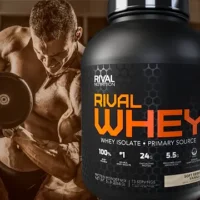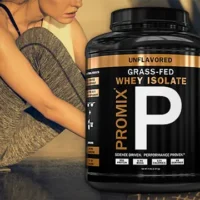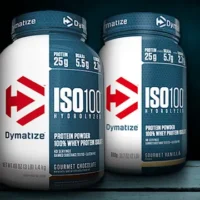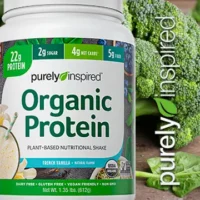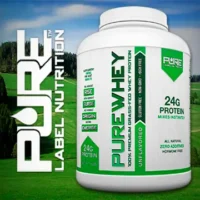BACK
What's the best Protein Powder?
In a market saturated with different types of protein, it’s easy to be overwhelmed by choice. We’ve taken a look at three to help you decide.
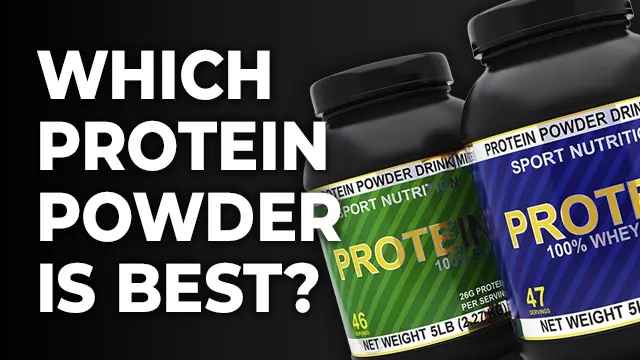
We’ve taken a look at three of the most common protein powders and compared them, to make it an easier choice.
Protein Sources
Whey is a protein-rich source found in milk. It’s a bi-product of yogurt or cheese production which is filtered, dried, and powdered for supplementation. Whey powder contains all 9 essential amino acids, making it a complete protein.
There are three common forms of whey powder:
There are three common forms of whey powder:
Whey Concentrate
Low levels of fat and carbohydrates, and a high concentration of protein. Depending on how it’s filtered, it may contain between 30 – 90% protein.
Low levels of fat and carbohydrates, and a high concentration of protein. Depending on how it’s filtered, it may contain between 30 – 90% protein.
Whey Isolate
Filtered to remove the majority of fat and lactose. Contains minimal levels of fat and carbohydrate; excellent for those on high protein or low carb diets.
Filtered to remove the majority of fat and lactose. Contains minimal levels of fat and carbohydrate; excellent for those on high protein or low carb diets.
Hydrolyzed Whey Isolate
Partly digested using enzymes, making it easier to stomach than other whey powders. Pre-digested protein is claimed to be better absorbed and utilized by the body.
Partly digested using enzymes, making it easier to stomach than other whey powders. Pre-digested protein is claimed to be better absorbed and utilized by the body.
PRO's
- Whey protein concentrate is often the most affordable option.
- Whey is often considered to have a superior taste and texture.
- Rapidly absorbed and digested.
CON's
- Can cause digestive discomfort for those with lactose intolerance.
- Isn't vegan friendly.
PEA PROTEIN POWDER
Filtered from dried pea flour, pea protein is what’s left after removing most of the fiber and starch.
Also containing all 9 essential amino acids, it contains nearly as much leucine as whey, making it perfect for muscle growth.
Pea protein is commonly sold either by itself or mixed with a rice protein powder to optimize the balance of amino acids. It’s very well digested, and by weight is about 5% less protein than WPI.
Also containing all 9 essential amino acids, it contains nearly as much leucine as whey, making it perfect for muscle growth.
Pea protein is commonly sold either by itself or mixed with a rice protein powder to optimize the balance of amino acids. It’s very well digested, and by weight is about 5% less protein than WPI.
PRO's
- A low allergen option.
- Gentle on the digestive system.
- Similar levels of protein, carbohydrates and fat to whey.
CON's
- Low in the amino acid methionine.
- Digests more slowly than some other proteins.
- Can have a chalky texture.
RICE PROTEIN POWDER
Extracted from brown rice, this plant-based protein powder also contains all 9 essential amino acids. Like pea protein, it’s higher in some than others and is often combined with other plant proteins to optimize levels.
Rice protein is hypoallergenic and very easily digested. This makes it ideal for anyone with gut issues or dairy sensitivities.
Rice protein is hypoallergenic and very easily digested. This makes it ideal for anyone with gut issues or dairy sensitivities.
PRO's
- Very easily digested.
- Hypoallergenic, gluten and dairy free.
- High in amino acids cysteine and methionine.
CON's
- Low in lysine.
- Chalky texture, not as soluble as whey or pea proteins.
- Digests more slowly than other proteins.
SO, WHAT'S THE BEST?
Ultimately, your choice should depend on your specific needs and for that you should check out our Protein Guide for help. You can also check out our Best Rated Protein products. Think about your overall health and digestive system, as well as what makes your taste buds dance.
Any of these protein powders can be used effectively for muscle growth, weight loss, or ensuring you get enough protein in your diet. Finding the right one for you may take some trial and error, to see what works for your body!
The best protein powder simply means the best protein powder for you.
Any of these protein powders can be used effectively for muscle growth, weight loss, or ensuring you get enough protein in your diet. Finding the right one for you may take some trial and error, to see what works for your body!
The best protein powder simply means the best protein powder for you.
Popular Reviews
The content on this site has not been written, reviewed or endorsed by a medical professional. We assume no liability for the misuse of supplements and recommend you review the label of any product, as well as consulting with your health care professional.
We are a participant in the Amazon Services LLC Associates Program, an affiliate advertising program designed to provide a means for us to earn fees by linking to Amazon.com and affiliated sites.
We are a participant in the Amazon Services LLC Associates Program, an affiliate advertising program designed to provide a means for us to earn fees by linking to Amazon.com and affiliated sites.
© 2025 ProteinPowder.com
